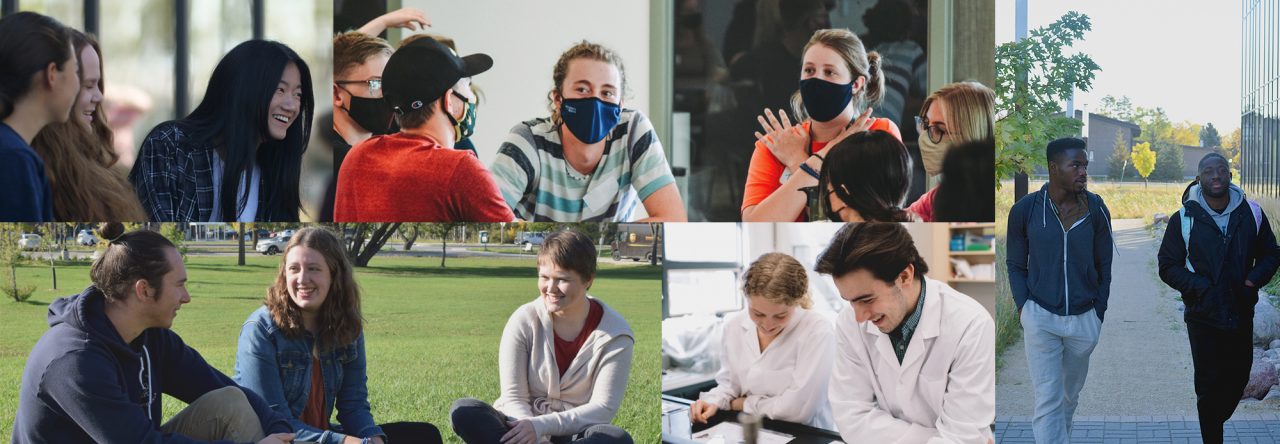Leading up to the summer of 2017, I could never have anticipated the depth of transformation I would experience, and the alteration this would have on my daily life as a young, white, settler student, and as a Christian.
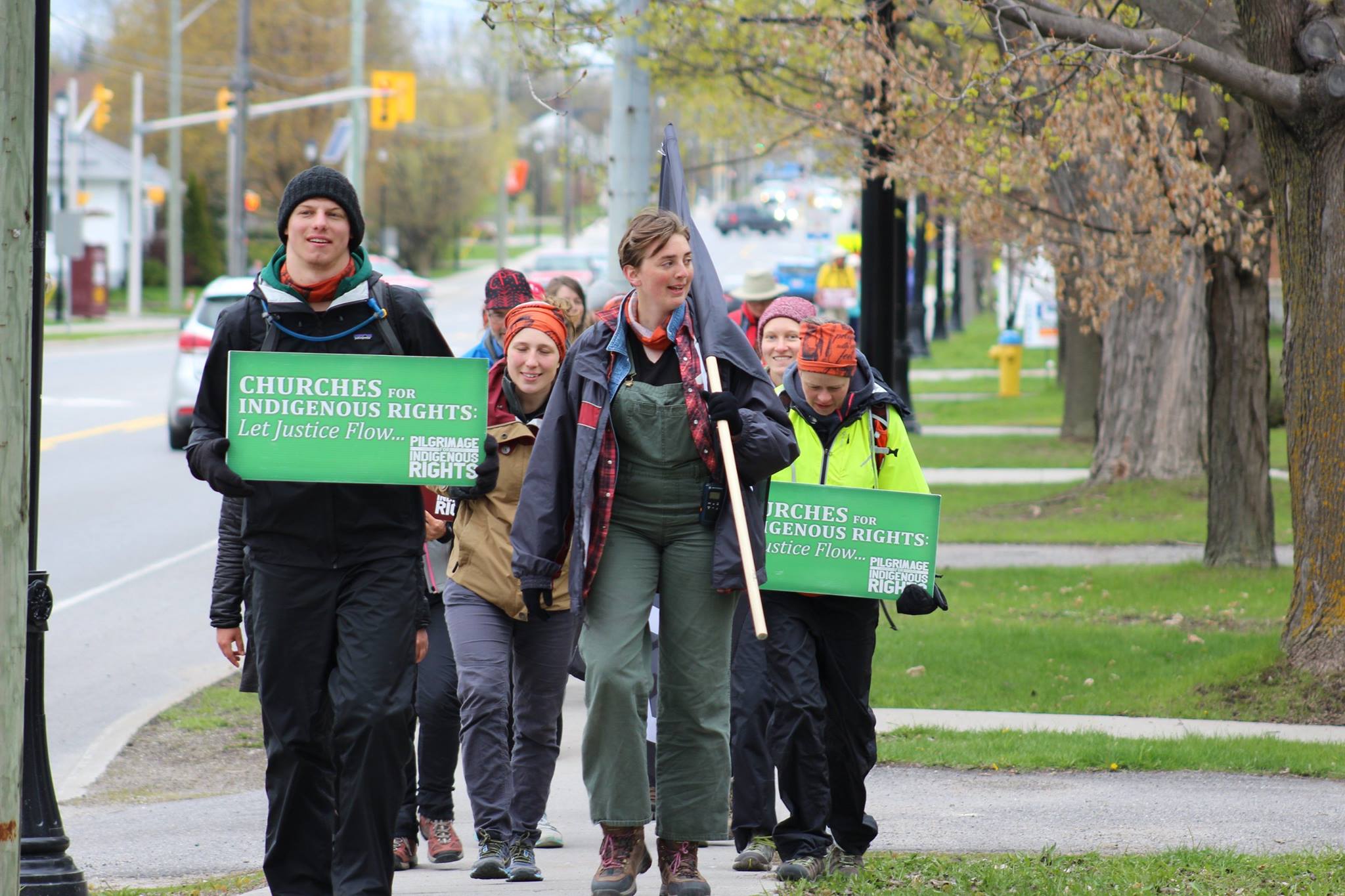
As I prepared to work over the summer, Erin Froese (a fellow CMU student, and previous #myCMUlife blogger) planted a seed in my mind at a screening of the documentary film Split Lake last Spring, about entering the Indigenous-settler conversation more intentionally through the Pilgrimage for Indigenous Rights.
While I thought little of it at first, God pulled me in. After consulting with some of my spiritual advisors, I took a leap of faith and committed to the entire walk: 600 km from Kitchener to Ottawa.
Did I know what I was getting myself into? Was I prepared for God’s new, transformative path, of which he had begun preparing me for? Could I have anticipated being who or where I am now, from who I was and where I began last spring?
The answer? No.
With great joy and exhilaration I walked; learning along the way, first hand, what it meant to be an Indigenous ally, to walk the path of reconciliation, and what the struggles have been like for our host peoples over the past 150 years of colonialism.
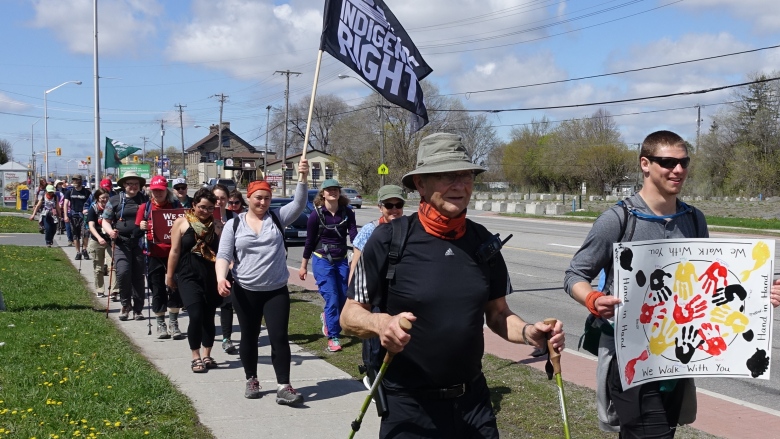
Engaging with people of faith and walking day after day, I found a deeper connection and passion growing inside me for the pursuit of justice and reconciliation, believing even now that the church belongs here.
As I developed relationships with specific people such as Leah Gazan, Steve Heinrichs, and MP Romeo Saganash, this personal drive grew exponentially.
Along the way, I contacted my parents and asked about my grandfather’s work with the Indigenous communities of Manitoba, and came to learn that my ancestry traces (at least partially) into the Indigenous community of The Long Plains. Recognizing that I am the grandson of honorary Chief White Cloud, and that indigenous peoples’ value ancestry very highly, I committed to reignite the reconciliation work my grandfather had begun back in the 1970’s.
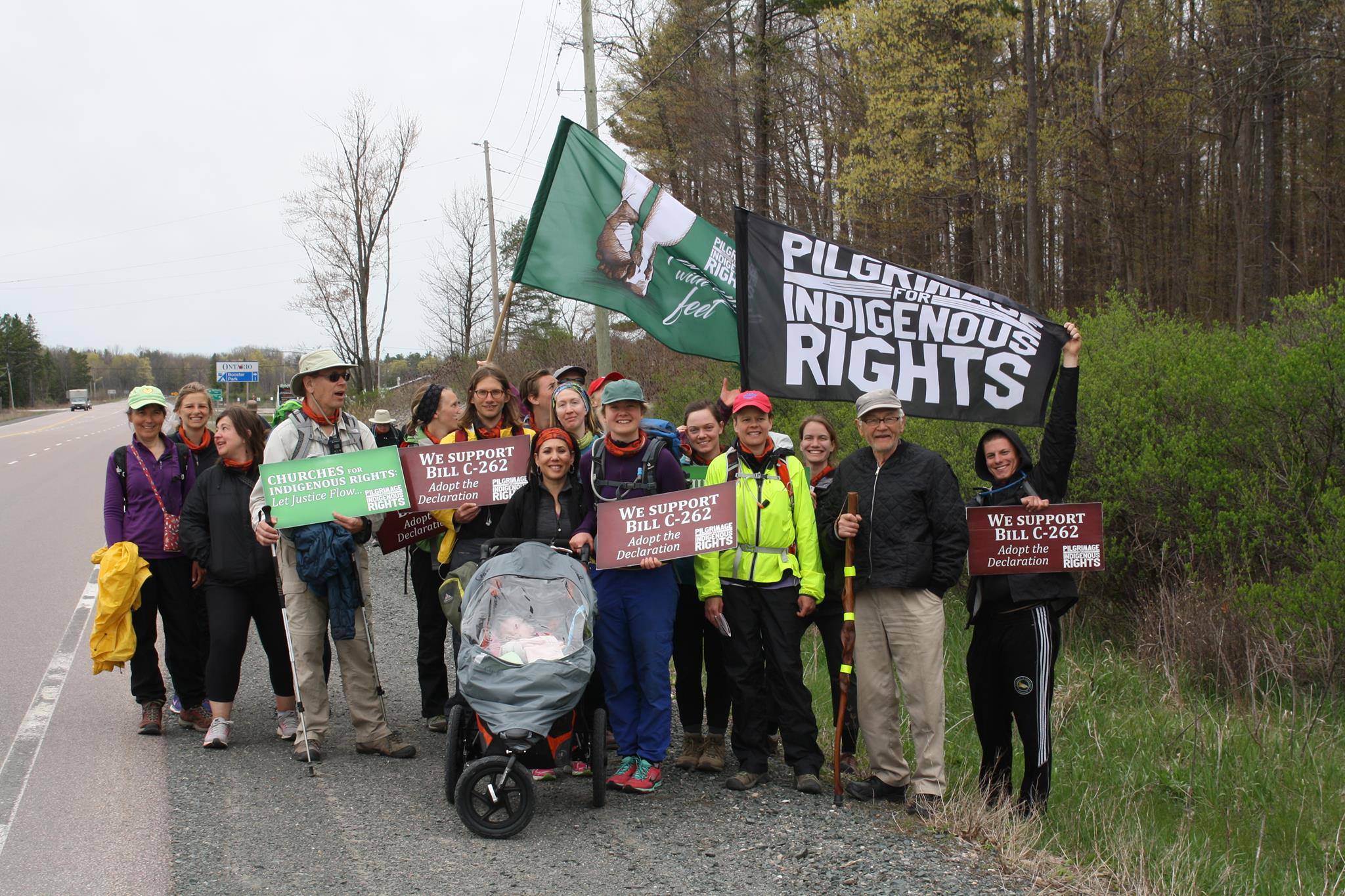
Following the completion of the Pilgrimage, I found myself planning, but in a type of limbo as if waiting for some guidance as to the direction I should go. While developing a list of actions surrounding the Pilgrimage and Bill-C262 had been simple, taking initiative to provide local education and support in my hometown of Boissevain, Manitoba (Treaty 2 territory), proved to be quite challenging.
However, after several meetings with my pastor, various conversations with fellow Indigenous allies, as well as suggestions from mentors and my parents, I pushed hard for action in August. Since then, I have begun planning possible citywide events with Kerry Saner-Harvey of Mennonite Central Committee Manitoba around a variety of Indigenous issues, particularly those surrounding Muskrat Falls.
Through the editorial assistance of a few individuals, I wrote and had an article published in the local paper, the Boissevain Recorder, where I discussed the relevance of the Pilgrimage, and the essential importance of Bill-C262 being passed. I have also become a Fellowship Group leader, leading a group on the study and discussion of Buffalo Shout, Salmon Cry, a book that tackles church-indigenous relations.
Last, but not least, since the latter half of the Pilgrimage to now, I have become an activist on social media lobbying for the Bill, for Indigenous Rights, and for the positive change that can and is happening.
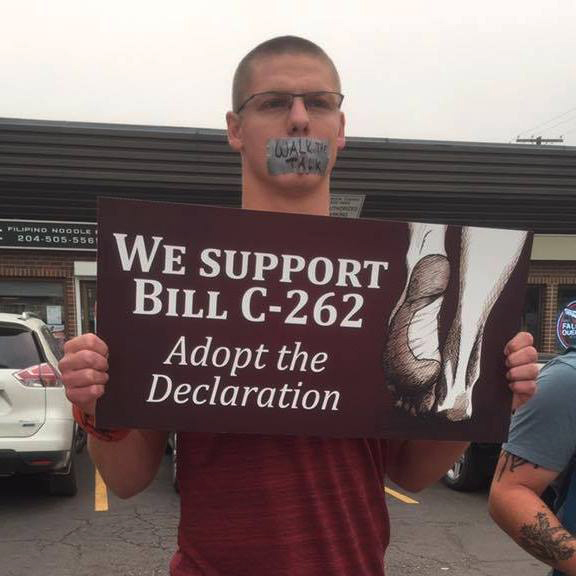
While I am back at CMU, I continue to lobby and participate in various actions surrounding Bill-C262, and am excited for the future of where this new path may take me. It is here that I have found truth to the phrase, “the joy of the Lord is my strength.”
I found joy on the Pilgrimage, and in discussion and writing over the summer, and I continue to find joy and see God’s grace in the love and community that I have returned to for another year at CMU.
Colin Reimer is a third year Psychology major at CMU.

